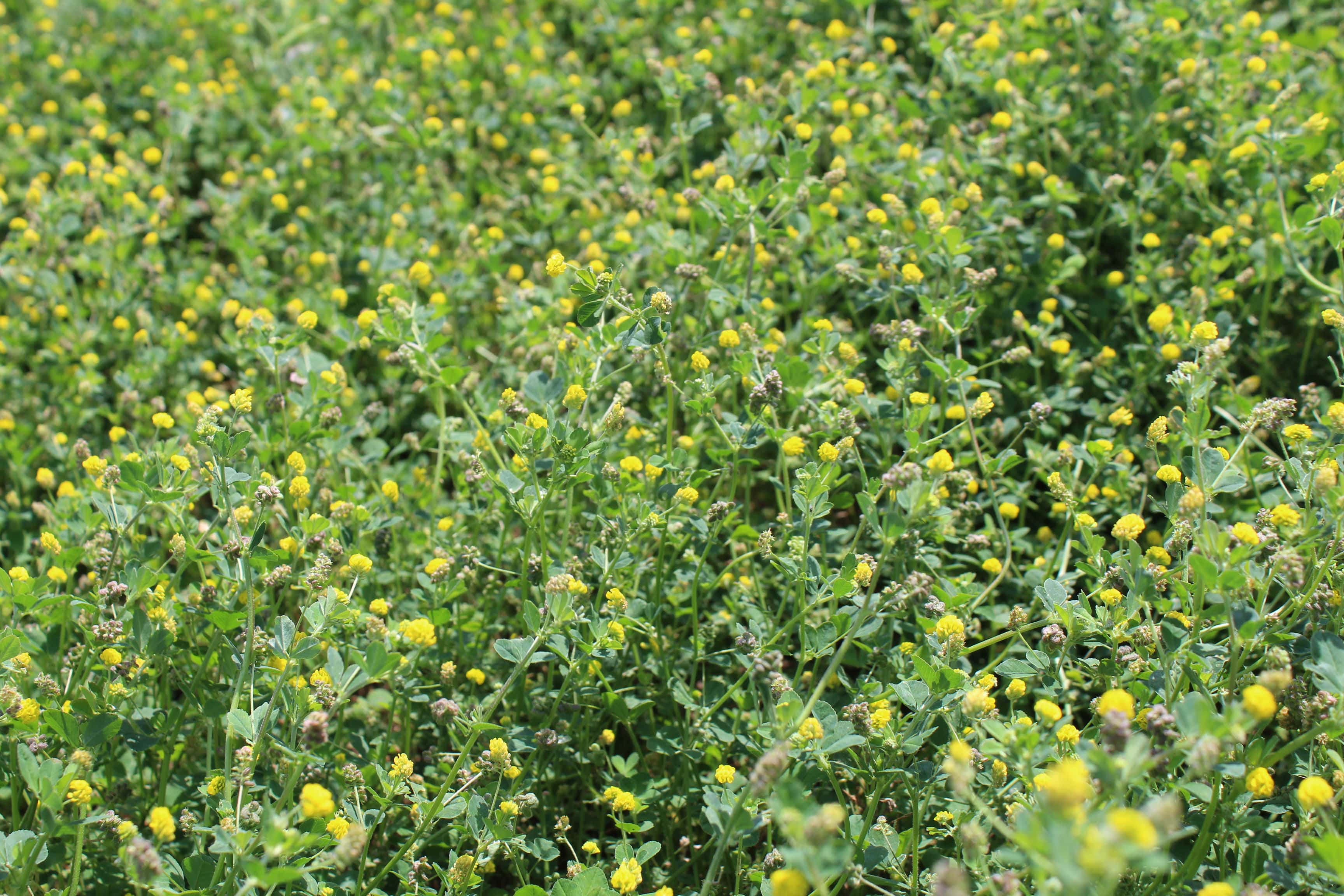EKOLA
Year of registration: 1998

Origin:
It was derived from the restricted variety Slapská – stock breeding and individual selection
Description and economic traits:
The plant is susceptible to lodging, it grows to a height of 40–60 cm depending on the site. It has trifoliate leaves. The yellow flowers are borne in heads. The fruit is one or two-seeded black kidney-shaped pod. The seed is egg-shaped greenish-yellow to yellow, similar to that of lucerne. Black medic belongs to nectar-bearing crops and is suitable chiefly for dry aoils. It is an annual and biennial plant, in permanent stands it maintains itself readily by natural reseeding. 1000-seed weight is 1,7–2 g.
It is used as a constituent of specially-designed grass mixtures for permanent and temporary meadows and pastures, it is suitable as underseeding for green manure. Nutrient content is comparable with lucerne, but the yield is lower.
Cultural method:
It tolerates all types of soil, it is a plant of dry sites. It is sown in mixtures at a rate of 10–15 kg from March to August. It does not tolerate wet soils. It is harvested until blooming starts. It grown for seed it is seeded alone at 15 kg. Seed yield is 3–5 q. The seed is husked.
Advantages: